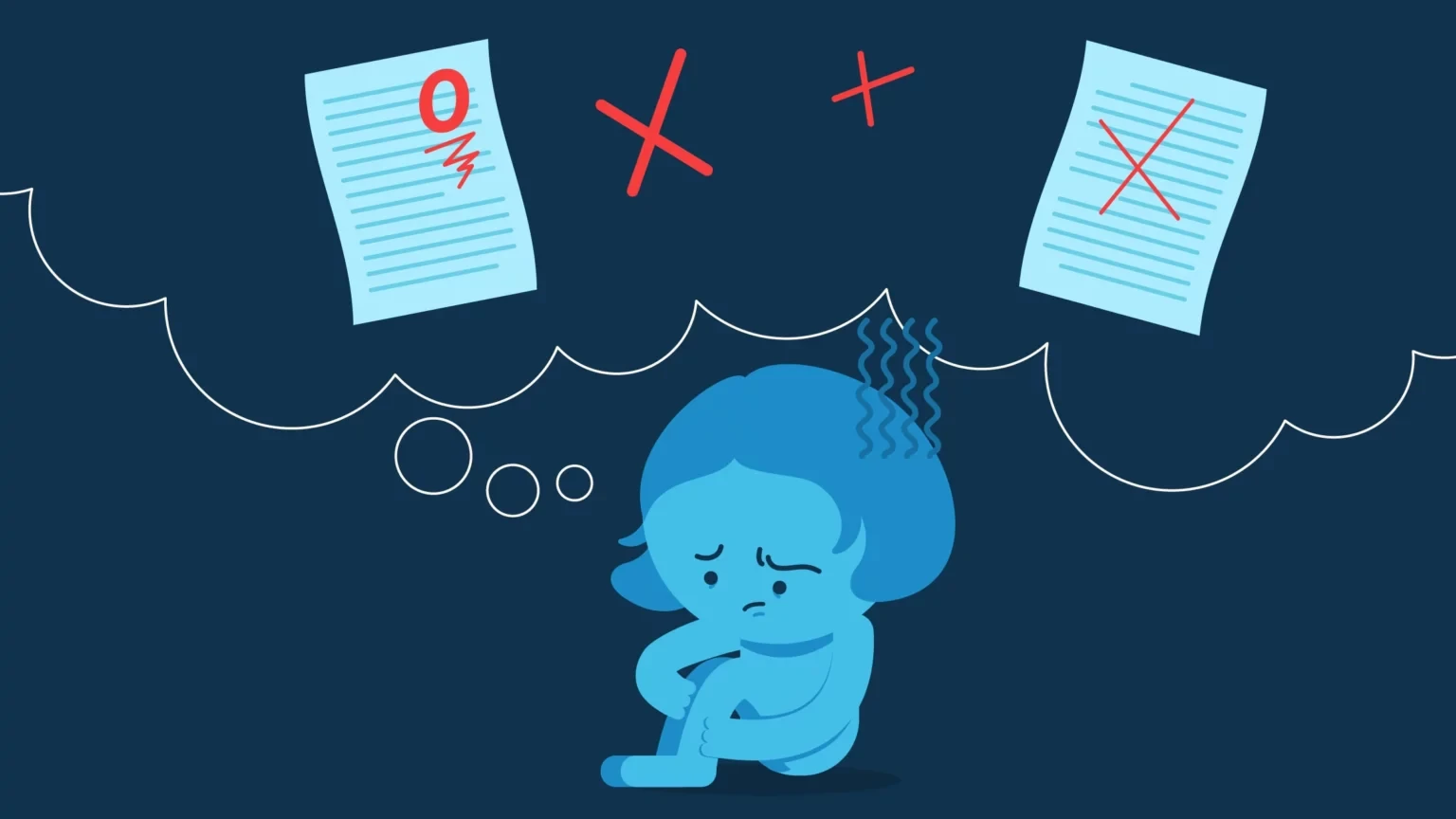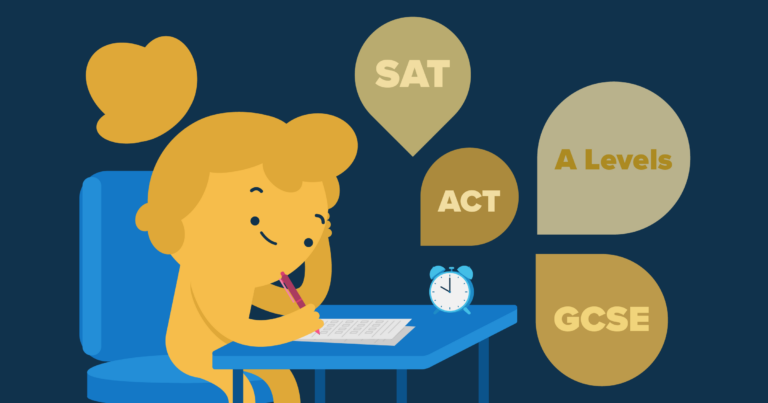Definition of the Fear of Failure: What exactly is it?
Fear of failure is a persistent, irrational fear of failing to achieve one’s goals. It can manifest in various ways and settings, most notably at work or university. Sometimes, the fear might be related to a specific situation like a big exam or job interview, but it can also be omnipresent anxiety around failure.
Fear of failure can come in different forms and affect your life in different ways. While it can make you feel helpless and stressed, it can also cause low self-esteem. But fear of failure can also lead to positive thinking in ways you may not have thought of before. Let’s dive deeper and see how!
The psychology behind the Fear of Failure
Fear of failure is a common issue faced by many individuals all around the world, but most times, it is overlooked. From a psychological perspective, the fear of failure can be more severe in some individuals, which is called atychiphobia.
One of the reasons that fear of failure is overlooked is that it shows its effects in disguise. For example, research conducted in 2009 has shown a relationship between the fear of failure and procrastination. Most times, when you find yourself in an indecisive state or struggling to take any action, you can’t quite understand the reason behind it, leading to judging yourself and asking, “why am I like this?”. The reason behind these states is usually not linked to discipline or willpower but rather to fear of failure.
To fully understand the fear of failure, let’s have a look at another psychological perspective. A study conducted on the medical students of King Saud University showed that:
- Fear of failure can harm students’ academic performance.
- Fear of failure causes more anxiety, self-doubt, and lower self-esteem.
- Students who have not failed an exam previously, those with depression, and those with a family history of mental illness tend to fear failure more.
Causes of the Fear of Failure
We have stated that the fear of failure is common amongst students and professionals alike, but learning the reasons behind it can help you understand if you are suffering from it and solve the problem starting from its roots.
Common causes of the fear of failure are:
- Past negative experiences: When you go through a big disappointment or unpleasant consequence of failing something, the possibility of you having a fear of failure the next time you try something similar rises.
- Perfectionism: If you’re detail-oriented and always want everything to be perfect, you may face anxiety around your ventures to the point of not venturing at all.
- Societal pressure: When you fear failure, it is usually linked to the fear of being judged by others. After all, ask yourself, “What if nobody could see and comment on my failures?” Often you will get an answer that makes you realize that you are not afraid to fail but afraid of what others may think when you fail.
- Fear of expectations: When you have a lot of expectations for yourself or others have high expectations of you, there is a risk of developing a fear of failure. This is because the stakes feel higher, and the pressure to meet those expectations can be overwhelming.
- Fear of success: Believe it or not, the fear of success is also a real thing. When you achieve success, there is often an expectation that you will maintain that level of success or even surpass it. This can create a lot of pressure and anxiety, leading to a fear of failure in future endeavours.

Fear of Failure at School
The fear of failure can be a common experience for students, as there is often a lot of pressure to succeed academically. This fear can manifest as test anxiety, procrastination, or avoidance of certain subjects or assignments.
Changing your goal is one of the best ways to overcome the fear of failure in school. Rather than setting a goal for the test result, set goals for the things that you need to get done to prepare for your test. As you complete smaller tasks first, you’ll gain more and more confidence. In other words, taking the next step when you are afraid of the numerous steps ahead is the best way to eventually take them all – one by one.
Fear of Failure at Work
The fear of failure can be especially challenging in a work environment. There is often a lot at stake, including job security, career advancement, and financial stability.
This fear can manifest as procrastination, self-doubt, or even avoidance of tasks or responsibilities. It can be helpful to reframe failure as an opportunity for growth and learning rather than a reflection of your worth as an employee. Seeking support from colleagues or a supervisor can also be beneficial in overcoming this fear.
How to Overcome the Fear of Failure?
Overcoming the fear of failure can be a challenging process, but it is possible with practice and persistence. But before we move on to the practical tips, some questions should be asked rather than answered.
The first question is, “Is there a guarantee that shows you are going to fail? Or is there one that shows you won’t?” The answer to both questions is the same, “no“.
The question that should come after is, “Then, why am I fearing failure like it is certain?” the answer is fairly simple. Our subconscious mind always tends to use past experiences (bad ones in this case) to protect us against the possibility of them happening again. But the funny part is, it doesn’t know that it will happen again, just a hypothetical guess is all it is.
There are more things likely to frighten us than there are to crush us; we suffer more often in imagination than in reality – Seneca
So what can you do to overcome this subconscious series of thoughts? Look at the issue from a different perspective. Rather than thinking that you are failing, see that you are actually learning ways that do not work in your favour to be successful.
As you learn more ways that don’t work for you, the picture gets clearer, and you begin to see the ways that do work. In other words, the more you fail, the more you get to know yourself, which means it only contributes to your wisdom about life.
After all, if you never fail, you are not trying hard enough. And as long as you try hard enough, success is guaranteed in the long run.
Practical Tips for Overcoming Fear of Failure
Now that you know why the fear of failure occurs and how you can think about it, let’s take some action.
Here are some ways to overcome the fear of failure:
- Reframe failure as an opportunity for growth and learning.
- Set realistic goals and expectations for yourself.
- Break down tasks or assignments into smaller, more manageable parts.
- Practice self-compassion and be kind to yourself, even when things don’t go as planned.
- Celebrate your successes, no matter how small they may seem.
- Remember that failure is a natural part of the learning process and doesn’t define your worth as a person.
- Do not forget that the ultimate goal is to better one’s self rather than to get a specific result.
About the Author
Oğulcan Tezcan is a writer, translator, editor, and an accomplished engineer. Oğulcan is also a keen researcher and digital market analyst, with a particular interest in self-development, productivity, and human behaviour.
Fact checked by Sarah Thomas.
Sarah holds degrees in Psychology and International Business from both the UK and Germany and has over 11 years of experience in the education industry. Her particular areas of research interest are Social Psychology and Personality Differences in the workplace. She is passionate about Mental Health Advocacy and cuddling her dog.













